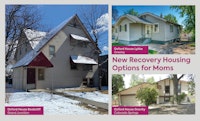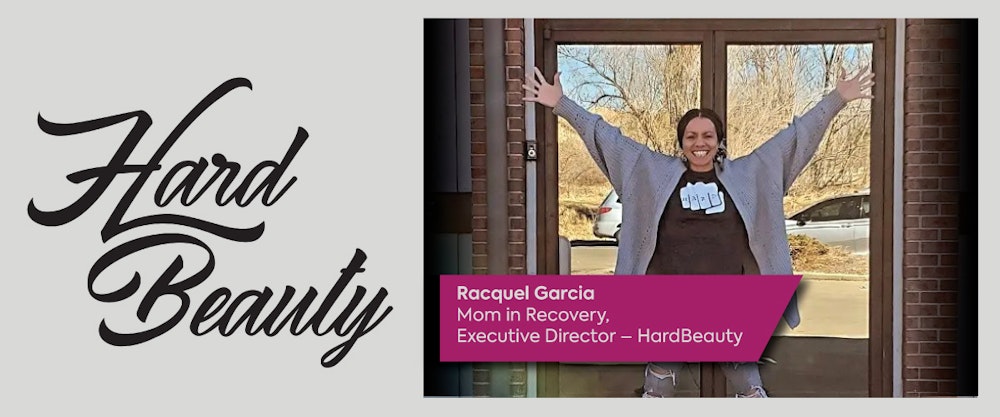
HARD WORK, HARD ROADS, BEAUTIFUL OUTCOMES
Powerful peer coaching that integrates care, community and compassion.
Racquel Garcia
Founder, Hard Beauty
https://www.hardbeauty.life
Racquel Garcia describes herself as, “A sober wife, mother, coach/mentor/counselor, spiritual guide, social entrepreneur, author and speaker.” And somehow, even those titles don’t seem to encompass all that she has accomplished or the number of lives she has touched.
Sober for more than 12 years now, Racquel has overcome substance use disorder with alcohol, opiates and cocaine. She had the trauma of having two of her friends murdered when she was a teen. And she was sexually assaulted and came from a childhood home where her father drank too much and her mom did not know how to deal with all that Racquel was experiencing. “My life got really out of hand very fast and I lost everything by the time I was 18 years old. I dove head first into boys and drugs and partying,” she said. “I got married when I was 19 years old, and by the grace of God, I'm still married to that man. It'll be 25 years this May and we have four beautiful children.”
Today, she is the founder of an innovative and highly successful peer recovery coaching program called HardBeauty. But, her road to recovery and entrepreneurship was tough and filled with setbacks. She moved from her home in Aurora, Colorado to the small rural community of Palmer Lake searching for a path to recovery. There, her closest friend died of an overdose while trying drugs for the first time. “She changed my life, obviously. But I didn't get sober right after that.” Racquel remembers. “It took me another four months to finally put myself into a treatment facility and I haven’t had a drink since.”
Throughout her own recovery journey, she realized that helping other women had become a passion. Already a mother of four, and with a husband who was struggling with his own recovery, Racquel put herself through college. “I heavily relied on my community to help me pick up kids and do internships. I graduated from college in 2014 with honors,” she said. “It reinforced to me how important it is to have a network of support behind you.”
When there were two teen suicides in her community, people knew Racquel would be willing to help. She and her senior coach, Tiffany Kuhwede, started “Hope Groups” which gave teens a safe outlet for whatever they were dealing with. One of those young teens who attended was Sabryna, who is now a youth coach with HardBeauty. “She’s 20 years old now, and she's doing amazingly, despite some huge setbacks in her life,” Racquel said. “She teaches me resilience all the time.”
Today, Raquel has created an incredible community of trained and dedicated peer recovery coaches who “empower people to create the lives they want for themselves, regardless of their circumstances.” The name comes from all of them understanding that overcoming what they’ve been through in life has been HARD work, but the BEAUTY that they have created is far greater than the destruction they lived through.
“HardBeauty is tattooed on my hands,” Racquel explained.” It means choosing yourself over anything or everyone else. Choosing to stop the chaos in your life and choosing what is best for you.” The team at HardBeauty is committed to meeting women one on one, where they’re at, and helping each woman discover there are multiple pathways to recovery.
Because many HardBeauty programs are virtual, Racquel says women listen in to group meetings while they’re on the bus, cooking dinner, parenting and getting through their day. “Women don’t get an oasis in which to recover,” she said. “We have to find pockets of recovery and try to put those together. That’s why we link strong women to each other - so that they can be supportive and there for each other no matter what that looks like.”
Through HardBeauty, coaches find out what each woman’s goals and dreams are and then get them on a recovery platform and connect them to other women going through similar things. Everything is online, always free and HardBeauty takes insurance, Medicaid and offers some scholarships for coaching.
“We created this online recovery community because women needed a place to recover every single day.” Racquel said. “My tattoos on my fingers say Knit and Purl, because when I got sober, I didn't know how to sit still and I knitted like a crazy lady. So, now I have a group online called Stitch and Bitch, where we stitch and bitch in recovery and it works!”
HardBeauty’s online platforms have served 3,500 people in six months and that doesn’t include all the women they have connected with in person, integrating care for all their needs. “As women, we need the opportunity to recover but we also need to take a break. So, with our trauma work, we want women to come and get an hour’s worth of trauma work, but we want to give them daycare and services to give them an hour to come down off of all of that before they plug back into motherhood. Because we put women through so much, and then we ask them to just flip a switch. It doesn’t work like that.”Racquel knows it’s important to not only care for those in their programs, but to make sure coaches get the care they need as well. “I've watched clinicians these last two years really suffer because they are not working on their own healing,” Racquel said. “They are helping others but not helping themselves. And we get a lot of secondary trauma as coaches, which means we need our own therapy for that. That’s why all my coaches have to have coaches for themselves.”
In addition to their online coaching, yoga, social groups and more, HardBeauty is now going to have a bricks and mortar building in Castle Rock. Funded by grants, this will be the first in-person recovery community in Douglas County. But even with so much to look forward to, Racquel knows there are still roadblocks for moms in recovery. “Housing is a huge issue for women and children in Colorado,” she said. “We coach some moms while they are still in a treatment facility, but then where do they go when they get out? As a state, we need to work harder to integrate the care she’ll need after treatment. Otherwise, they go back to really bad situations or have to do incomprehensible things to keep a roof over their head and their children fed. Women will do whatever it takes. I know, because I did it in the past. And so, I’ll never stop trying to make the system work better for them.”
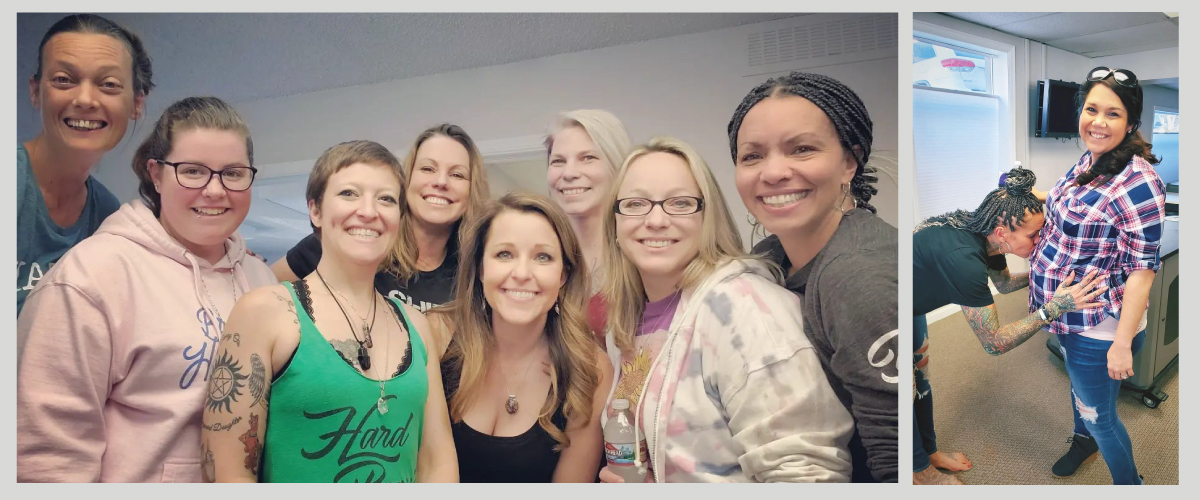
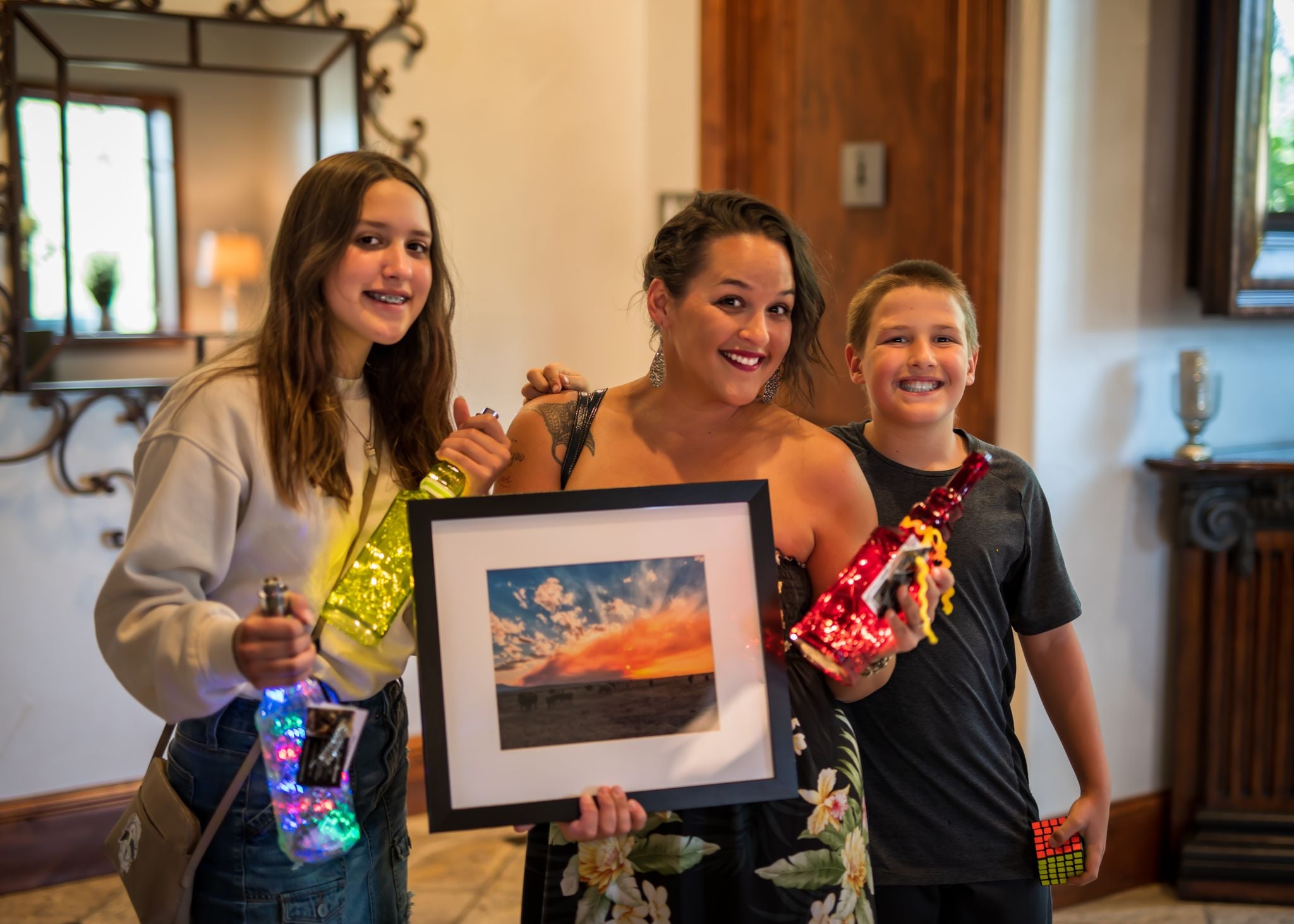
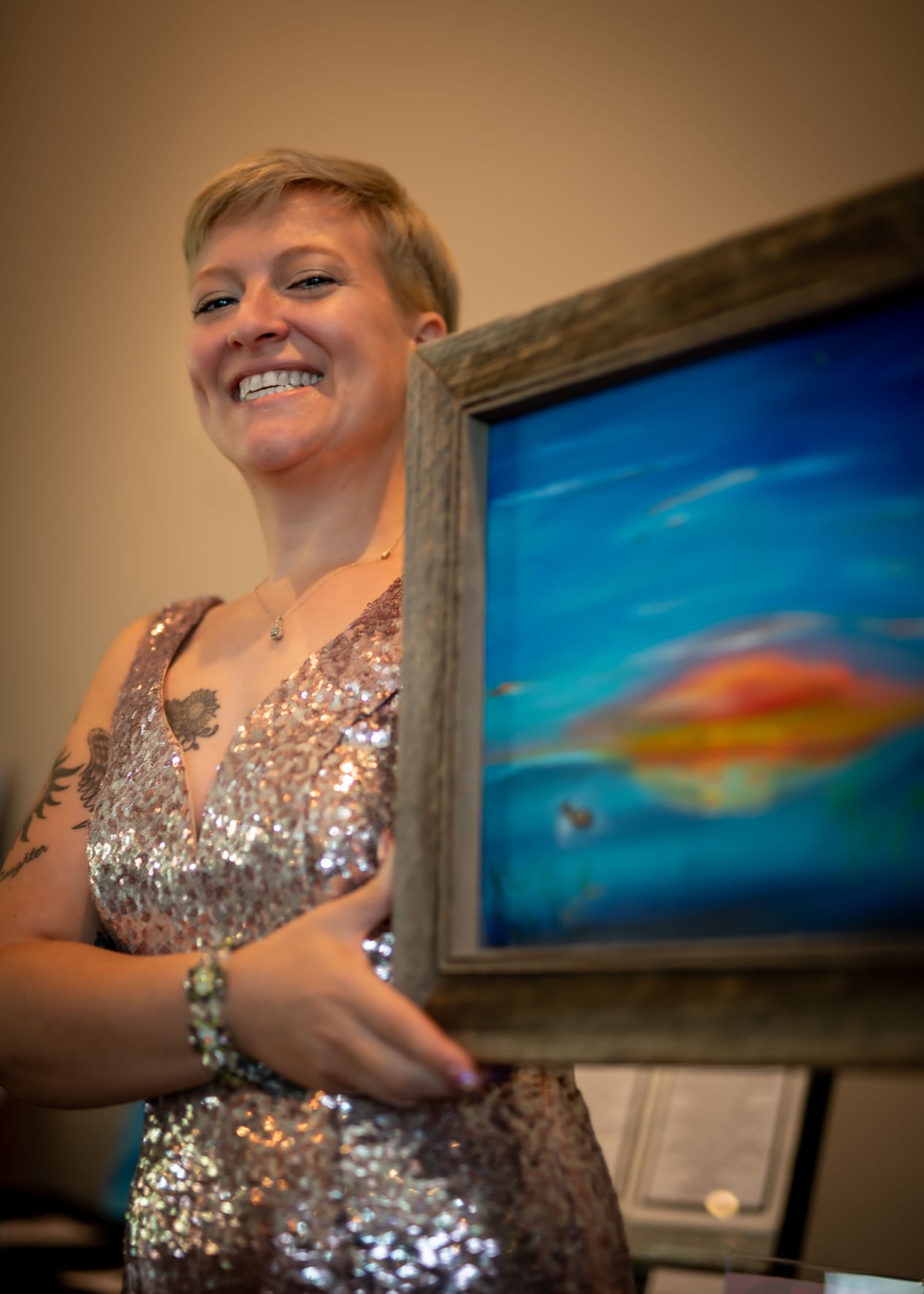
Last year, HardBeauty held a statewide art show called Recovery Along the Rockies. “I had seen all these moms doing beautiful artwork and realized we could create an opportunity to display their work,” Racquel said. The show was held at the Cielo event center in Castle Pines and featured an opera singer who is now in recovery, a talented photographer who had been experiencing homelessness, and many other talented works of art. The event was a fundraiser and was such a success it will be held again this year on July 17th.
Share this article:








